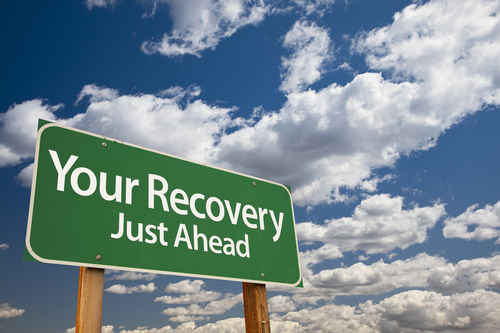CSMA Atwater drug rehab centers offer a wide variety of addiction treatment services in the Merced County area. These treatment facilities offer customized treatment programs to deal with the special needs of each individual battling drug abuse problems. With facilities and therapy programs similar to those used in luxury rehab centers, our Atwater drug rehab centers offer evidence-based therapy like behavioral therapy and medication-assisted treatment to ensure the best chances of recovery.
At CSMA, we believe that financial restraints must not hinder one’s journey towards sobriety. Hence, a number of payment accepted options are available to make treatment financially possible. Especially, for individuals with private health insurance, numerous treatment centers accept this mode of payment.
CSMA comprehends the importance of making rehab financially possible. As a result, people with medical insurance can utilize their insurance for this life-altering journey. Overcoming addiction does not need to be a financial problem, and CSMA accepts most health insurance plans as a payment choice.
Getting help with addiction is a journey, but it’s a journey you do not need to take alone. If you or a loved one is looking for help for addiction, keep in mind that help is readily available.


Addiction treatment is all about patient-centric care, administered by a team of certified professionals who understand that everyone’s journey with addiction is different. It varies not just in regards to the degree of drug addiction but likewise their lifestyle, psychological make-up, and familial and social environments. A well-rounded treatment method necessitates a deep understanding of these factors.
Therapy is a powerful tool in addressing the psychological aspects of addiction. At our Atwater addiction centers, therapy is tailored to an individual’s needs and can consist of:
- Cognitive-behavioral therapy
- Individual therapy
- Family therapy
These therapeutic interventions equip individuals with coping strategies to avoid triggers and tools to preserve sobriety in the long term.
Drug addiction can have an extensive impact on a person’s life but also their friends and family. Family therapy can be essential in the recovery process, helping families comprehend addiction and the function they can play in their loved one’s recovery. Individual and group therapy sessions are important to the addiction treatment program here.
Another essential element of holistic treatment is physical health, that includes dietary counseling and workout routines. These physical components considerably affect a person’s general health and recovery procedure. Adjusting to a much healthier way of life can dramatically reduce drug cravings and lower the threat of relapse.
Long-term recovery from drug addiction needs constant support even after initial treatment. We value this and provide aftercare services and follow-up programs to guarantee enduring sobriety. These comprehensive follow-up procedures are crucial to prevent any possibility of regression and to hold the individual responsible for their recovery.
Drug addiction can feel overwhelming, however it’s important to remember that recovery is possible. Atwater Rehab Centers value the importance of this journey and deal detailed treatment solutions to ensure a return to a healthy and productive life without drugs and alcohol.


At CSMA, the addiction treatment approaches deeply incorporate physiological, psychological, and way of life elements, making sure individuals can get used to life after detox. The counselors and treatment professionals at CSMA work collaboratively with clients to produce an impactful and efficient treatment strategy post-detox. CSMA’s rehab centers have erudite addiction treatment professionals. Their wealth of experience and proficiency make navigating withdrawal and subsequent addiction treatment more manageable and efficient. The addiction treatment professionals understand detox’s physical and psychological challenges and consequences.
They provide tailored services to meet each individual’s specific needs and scenarios. Our rehab centers are geared up with a variety of therapy alternatives for addiction treatment. These include:
- Group therapy
- Individual counseling
- Cognitive-behavioral therapy
- Motivational interviewing
Incorporating these therapies into a tailored addiction treatment plan enhances the possibility of an effective recovery after detox.
CSMA Rehab Centers are supportive, non-judgmental environments where those going through detox and looking for addiction treatment can feel safe and safe. They are havens where clients can embrace a substance-free lifestyle after detox. The addiction treatment services used foster resilience, mentor patients to manage everyday stress factors without reverting to substance use after detox.
In conclusion, life after detox in Atwater’s Rehab Centers is nothing to fear, thanks to the attentively developed addiction treatment techniques that deal with individual requirements.
Experienced professionals, holistic therapy alternatives, and thoughtful environments make the journey from detox to addiction treatment to recovery less burdensome.
One of our rehabilitation centers’ essential identifying functions is their holistic treatment approach. They don’t merely depend on the detox process as the complete service to addiction. Instead, they advocate and carry out a thorough recovery plan, promoting physical, mental, and spiritual health as vital elements of a person’s total well-being. This robust post-rehab life strengthens the person’s willpower to prevent substance usage, guaranteeing an effective social transition.
Our Atwater, CA treatment facilities are staffed with a dedicated team of professionals who bring a wealth of understanding and hands-on experience. This expertise contributes profoundly towards developing customized rehab and recovery strategies to address each citizen’s special needs and obstacles. These professionals provide consistent care and assistance, guaranteeing residents browse their rehab journey with minimal missteps. These teams of professionals have unquestionably contributed to lots of successful rehab cases in Atwater’s rehab facilities, sealing the city’s reputation as a dependable place for thorough rehabilitation.
Whether it is substance abuse or other kinds of addiction, repeated rehab efforts will be required for some patients. CSMA assures those looking for help that their rehabilitation is our top priority, no matter how challenging the journey may seem. This dedication to rehab and recovery can be seen in the tremendous efforts to refine the rehabilitation techniques, broadening the support systems and mental health resources available to residents on their path to recovery.
The dedication to rehab and recovery in our Atwater, CA rehab centers lines up with our broader vision of a healthy and productive community. Our efforts in healing and recovery stand apart in the area of mental health, wherein individualized treatment programs are created keeping individuals’ specific requirements in mind.


Our method to addiction treatment in Atwater, CA continues to develop, integrating the most recent research and treatments to guarantee a high success rate. This multi-pronged method has actually led lots of individuals to keep a drug-free life after treatment. Our intensive outpatient and inpatient programs focus on getting rid of drug use and addressing the underlying concerns that resulted in addiction in the first place.
The Atwater addiction treatment programs include numerous approaches such as detoxification, behavior modifications, counseling, alternative treatments, and consistent support even after treatment. The journey to a drug-free adult life is certainly tough, and with the constant support offered by our Atwater rehab centers, the journey becomes attainable and sustainable.
While traversing the path of recovery, individuals gain a brand-new viewpoint and outlook on life. They can rebuild their lives, re-establish healthy relationships, pursue their interest, and regain control of their life once controlled by drugs.
Addressing drug addiction benefits the affected individuals and the society at large. It removes the social expenses of drug addiction and adds to a healthier and more dynamic community.
Whether you or your enjoyed one is starting a drug-free life, this shift is a formidable process that needs support, understanding, and empowerment. This is exactly what CSMA rehab centers promise to use to individuals fighting with drug dependence.
At CSMA, we constantly strive to offer the optimal level of client care and support, showing our core belief in the possibility of recovery and a drug-free life.
FAQs
Drug Rehabs Near Atwater CA




